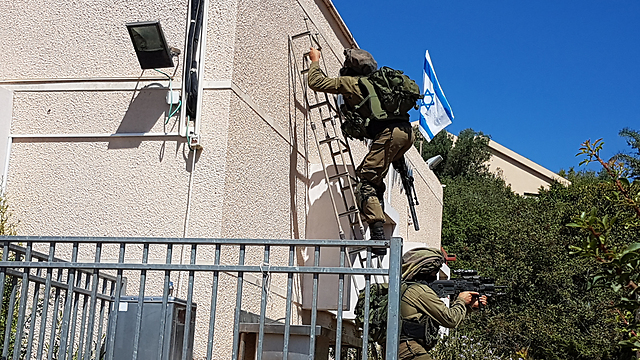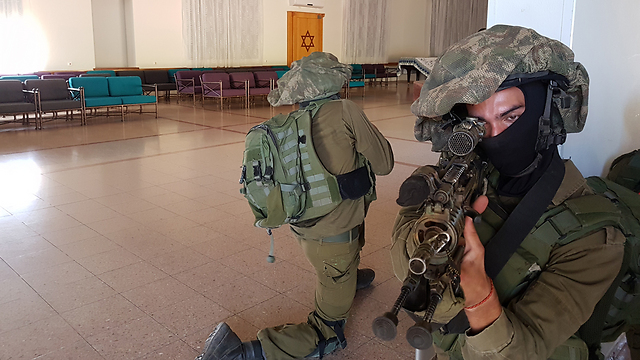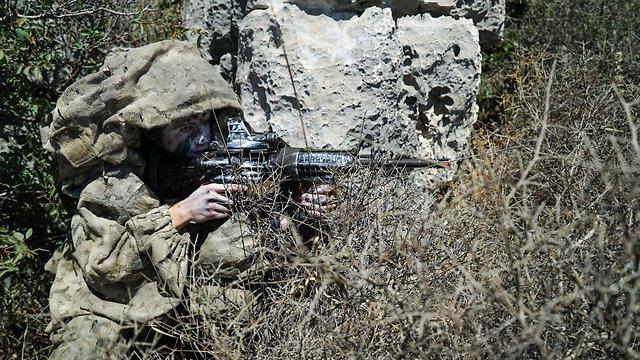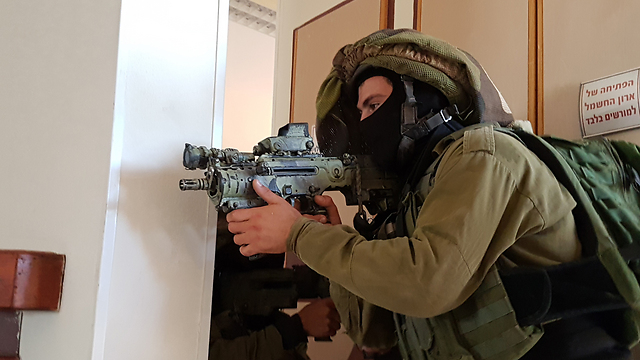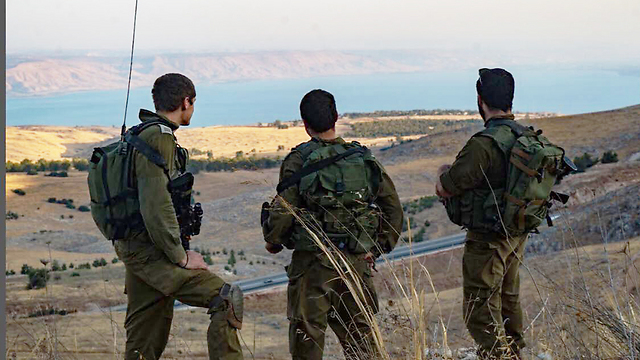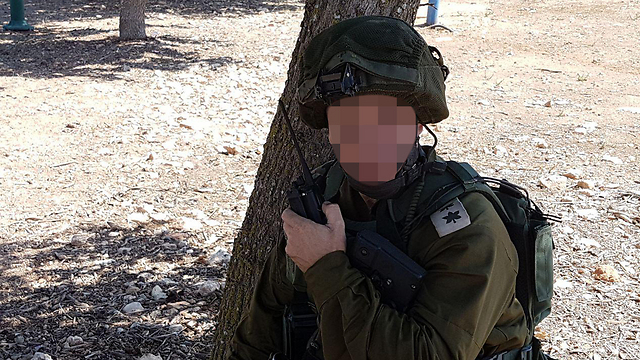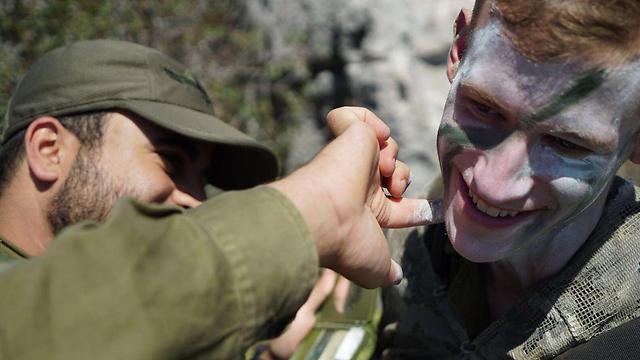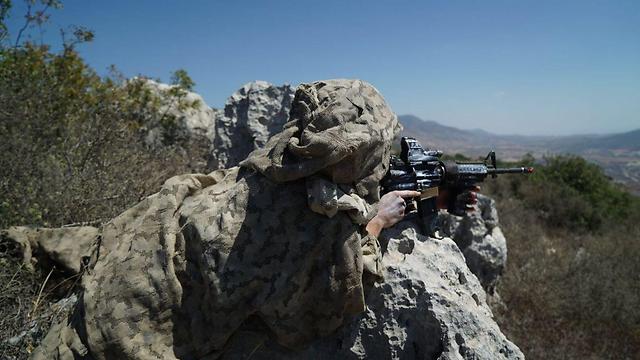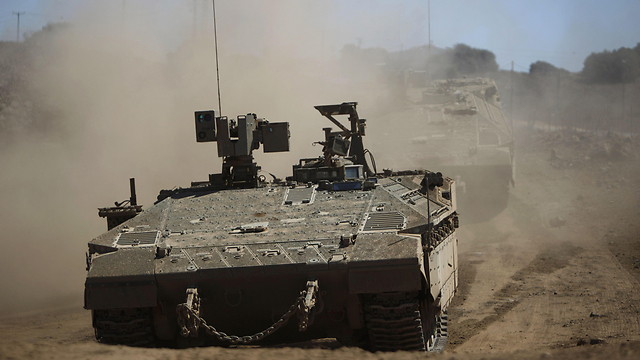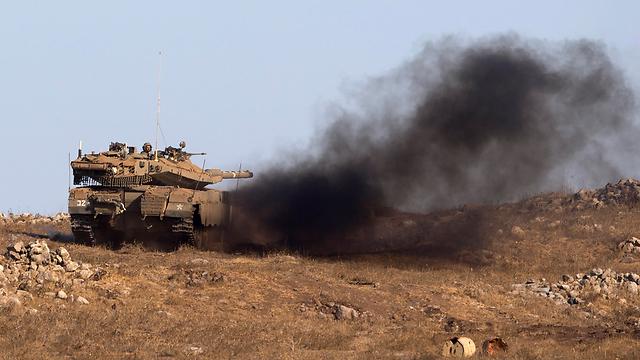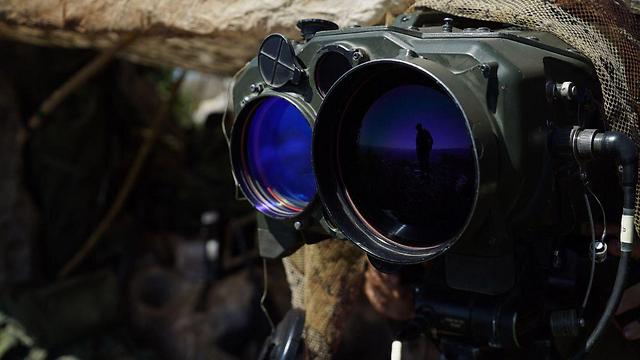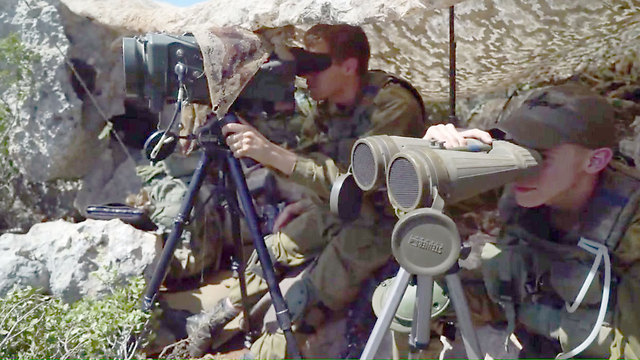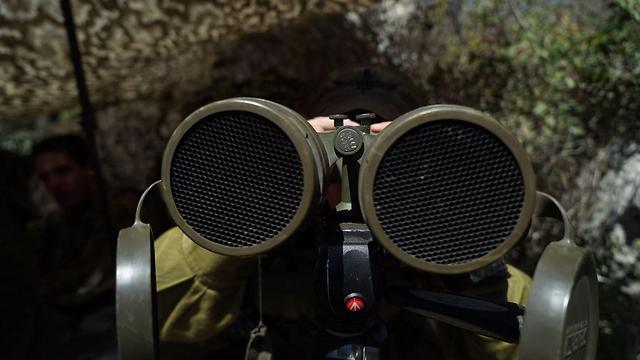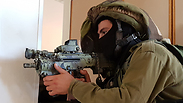
Northern Command seeks to prevent psychological victory for Hezbollah
In large-scale training exercise, IDF seeks to balance the need to work quickly to stop the Shiite terror group from getting a 'victory photo' of their flag waving over an Israeli home and the need to reduce danger to civilians and soldiers alike.
The Northern Command is going from defense to offense in the coming week as part of a large-scale training exercise that began on Tuesday and is set to last 11 days.
Much like other large-scale exercises in the IDF, the Northern Command's drill begins with the enemy firing the proverbial opening shot.
Psychological warfare is expected to play a central role in the next war—as it has done in military conflicts over the last two decades—and therefore Hezbollah's first move would be critical in determining who would be perceived as the victor.
The scenario drilled by the Northern Command in the community of Gilon, near Karmiel, on Thursday includes dozens of skilled fighters from Hezbollah's Radwan Company infiltrating Israeli territory, using the mountainous topography and the dense vegetation on the Israel-Lebanon border to cover their approach.
The Hezbollah fighters would then attack a community near the border fence, with the fire cover of heavy mortar bombs (Borkan missiles that can carry 100-200kg of explosives), hold hostages for many hours, and fly the Shiite organization's yellow flag over the roof of one of the Israeli homes.
This is supposed to be Hezbollah's "victory shot," regardless of how the terror group fares against the IDF in the days that follow.
'Even if surprised, we won't be caught by surprise'
"The Radwan Company is now fighting in Syria and gaining experience. They won't be able to conquer the Galilee, but these forces' entire purpose is to infiltrate Israel and fly their flag there as quickly as possible. We wouldn't let them. We would kill them, and not a single one would return to Lebanon, not even the one documenting with a Go-Pro," Col. Eliad (Maor) Muati, the commander of the Western Division on the Lebanon border, explained to Ynet.
"Even if we're not warned in advance and we're surprised, we wouldn't be caught by surprise, because we would work to locate the enemy even before they infiltrate a community and destroy them there with special, skilled forces," he added.
Col. Muati would be the first on the scene in case of an infiltration and would be the one commanding the mission to thwart the attack. Because time is of the essence when trying to prevent a psychological achievement for Hezbollah, Muati would face a difficult dilemma: Whether to isolate the incident and manage it wisely, and thus reduce the level of risk to any possible hostages, or charge quickly with a large force and eliminate the terrorists fast, thus preventing them from achieving the "victory shot" that would go on to define the entire war, but at the same time increase the risk to both the hostages and the soldiers.
"Time would be of the essence to (save) human lives," Col. Muati admitted. "There's a chance we'll be surprised at some point, but we're also preparing 'surprises' like explosives, cameras and obstacles. The Radwan Company's fighters are wandering around the border area in civilian clothes, studying and watching us."
So why couldn't Israel fire the first shot?
"Who said we wouldn't?" said the division commander. "In any case, we're not here to drill what's easy and comfortable. Hezbollah might also try to surprise us with Borkan missiles and drones."
Not far from where Col. Muati's forces are training to face a possible infiltration, Lt. Col. Tomer Meltzman, who commands the division's combat intelligence collection battalion, is training his forces to face a two-pronged challenge: first, the preliminary identification of the Hezbollah forces' infiltration to Israel and locating the targets for the Air Force to destroy them with aerial fire. In addition, his forces would also have to contend with the new fighting techniques the Hezbollah fighters acquired during the war in Syria and with the advanced weaponry the Shiite organization got from the Iranians.
"We're implementing new intelligence collection techniques in this exercise, which shorten the time it takes to engage the enemy," Lt. Col. Meltzman explained. "We can create sufficient warning by combining our covert and overt forces in battling a Hezbollah infiltration, and we have new capabilities, which recently became operational, that give us intelligence of higher quality, including by using over ground sensors to overcome the topographical limitations. Hezbollah is always trying to teach us a lesson, but we're trying to be one step ahead, and we are indeed one step ahead."











